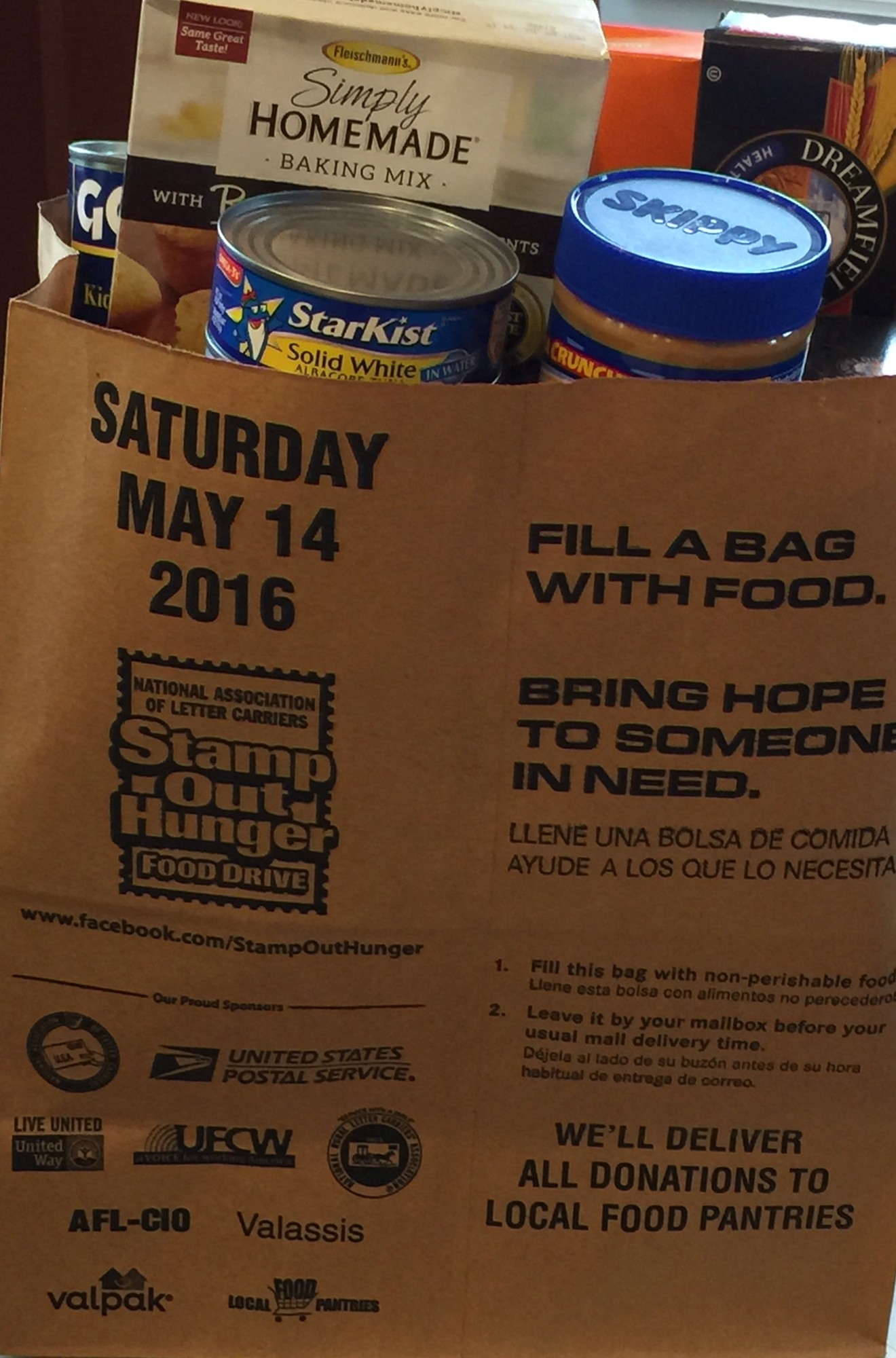Stamp out hunger on Saturday
Community members are invited to stamp out hunger this Saturday by participating in the nation’s largest single-day food drive. The collection benefits Island Harvest Food Bank — a nonprofit group that supports more than 316,000 Long Islanders who are at risk of going hungry every day.
Island Harvest and the National Association of Letter Carriers are joining forces for the 24th annual Stamp Out Hunger campaign, which is taking place on May 14 this year. Postal carriers throughout Nassau and Suffolk counties will collect nonperishable food items donated by Long Islanders who Island Harvest officials said want to be part of the solution to ending hunger in their communities.
Before the Herald went to press on Tuesday, the United States Postal Service delivered more than 100,000 brown paper bags to homes across Long Island to accommodate donations and make it easier for locals to participate. The bag delivery was made possible through the support of the United Food and Commercial Workers Local 342, according to Island Harvest.
Even if residents didn’t receive a bag in the mail, they are still encouraged to leave nonperishable foodstuffs — such as canned goods, pasta, rice, boxed juices and shelf-stable milk (no glass items) — next to their mailboxes before their regularly scheduled postal delivery. The letter carriers will pick them up.
East Meadowite Randi Shubin Dresner, president and CEO of Island Harvest, said the donations would help replenish supplies at Long Island’s food pantries, soup kitchens and other feeding programs served by the charity group. She said she’s confident that community members will answer the organization’s call for help once again.
“Every donation, no matter how small, helps Island Harvest serve our neighbors struggling with hunger,” she said. “The long-standing partnership we have forged with the NALC, the United States Postal Service and our corporate partners is making a difference in providing much-needed food to the scores of men, women and children who often don’t know when their next meal will be.”

 54.0°,
Fair
54.0°,
Fair 




